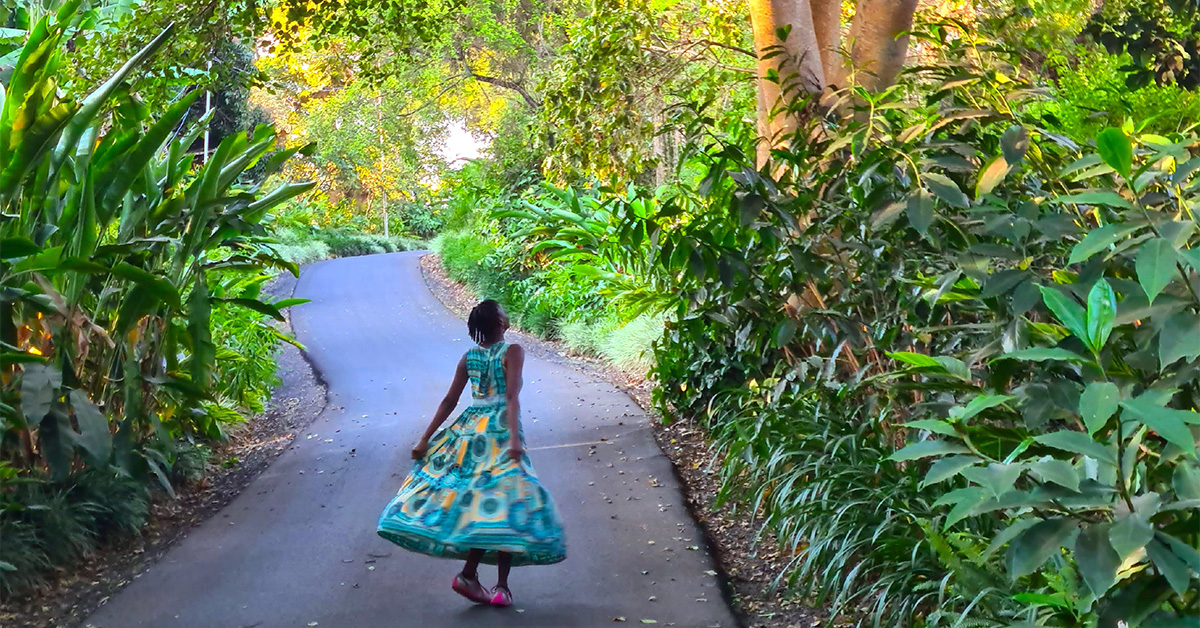

Claire Fenner Crawley (BA, MTh) is a Systematic Theology PhD candidate at Trinity College, Bristol, and a Lead Consultant for the Good Faith Partnership.

It is amazing the difference an invitation to the dinner table makes. As I walk into Hope Chapel, Bristol, in early March 2023, I see, hear and smell the instant and unmistakable buzz of a community preparing dinner. I am greeted at the door by the project leader, Chloe, and enter a foyer of people I don’t know who are speaking in a different tongue. But there is no time for the awkwardness of conversing across languages with little context. I am immediately handed an apron and ushered into salad preparation with two young women from Ukraine who are transformed from strangers to kitchen mates. Ukrainian and English intermingle as our vegetable chopping provides the vehicle for broken anecdotes of looking for work and housing in Britain, having recently fled the war: an alien concept to my settled British life encased in the familiarity of a hundred conversations leaning on a kitchen counter.
I have had the great pleasure in the past year of working on two projects looking to unleash a narrative and culture of welcome across churches in the UK. “Welcome Hubs” have sprung up in churches around the country to welcome resettled refugees, especially from Ukraine. The Good Faith Partnership, a social consultancy specialising in building cross-sector relationships between faith groups and the public and private sector, has supported local authorities to invest in networks of church-based Welcome Hubs as a vital component of a national response to Ukraine which signals support, refuge and welcome. Alongside the usual and crucial suite of health, language and schooling provision for Ukrainian refugees, we have argued that local Welcome Hubs, offering a place of safety, friendship, conversation and food, are not a nice extra but an integral part of supporting Ukrainians to build confidence and a new life in this country.
There is a deep theological conviction here: in a physicalist, service-based economy, focused on fulfilling the needs of refugees treated as rational economic humans, the inversion of Maslow’s hierarchy of needs to embrace the spirituality and relational flourishing in the top tiers is the key to unlocking confidence within the lower levels of work and housing. Jesus teaches that “man shall not live on bread alone” (Matt 4:4 NIV) and in the Bristol context we have found that prioritising physical spaces which signal home, comfort and community above service provision signal this important truth. Ukrainians are treated as guests at a dinner table, equal members of the community each with their assets to bring: stories of their week; conversational skill; caring enquiry across the table about their friends from Hong Kong who make up the majority of the Hub volunteer team.
So, the community is about more than the material provision of food, yet the cooked meal forms such a key part of the experience. During the cost-of-living crisis of Winter 2022–23, Good Faith Partnership’s warmwelcome.uk campaign supported the proliferation of more than 4,000 “Warm Welcome Spaces” across the UK. We have found that these spaces and the Welcome Clubs that offer regular hot meals are by far the most likely to attract and maintain a genuine, committed community of friendship, bridging social and cultural differences. What is it about these shared meals which has such an important effect? Whilst, sadly, food banks flourish across the country, there is a marked difference between the social and spiritual dynamics of a shared community meal and the distribution of a food parcel, though both essentially provide material nourishment to the receiver.

I believe that there are inherent dynamics in the physical sharing of food which foster and witness to important aspects of the presence of Christ on earth. I have already touched on the levelling effect of the many coded roles in the preparation and serving of a meal. In a space where cultural and language dynamics instantly cause a power imbalance, the quite literal working of diverse sets of hands and feet creates myriad roles in one social body, demonstrating Paul’s assertion that the body of Christ is strongest when “there are many parts, but one body” with each part, stronger or weaker, embracing its particular role (1 Cor 12:20 NIV). Differing cultural norms might create temporary moments of friction (or more often, laughter), but the body is united by its common goal to serve one another. For Ukrainians frustrated by their dependence on their British host families, these meals provide one moment in the week where they are able to feel an equal claim to the common table.
But is the one body of the one Lord that Paul is referring to in 1 Corinthians 12 actually represented and known in these settings?
The Welcome Hubs have had to hold a fine balance of expressing their deep faith in Jesus whilst providing a safe and appropriate welcome to all, not least because of their contractual relationship with the Council who refer Ukrainians to them for community and spiritual care which is open to people of all faiths or none. Along with the Hub leaders, I have found this a difficult tension to hold: representing the true character of the Lord who enlivens, calls and unites the church community hosting the Hub whilst not insisting on worship of Jesus as a requirement of the space. Here I have found 20th century German theologian and pastor Ernst Käsemann’s reflections on the Lord’s Supper a helpful guide. In his recently translated Church Conflicts ([Grand Rapids: Baker, 2022], 125) he argues that our spiritual state in coming to the Communion table as “Guests of the Crucified” is not as important as the One whom we find there. As the Crucified One, Christ’s company at his table must include the crucified of this earth: “Where guests of the Crucified gather, it always occurs as a fundamentally open community … To put it sharply: where Christians come together, the happy home life must be broken through.” This assertion does not spring from a panentheistic understanding of the crucified ones of the earth actually comprising Christ’s presence. Rather, in the apocalyptic unveiling of the true nature of Christ’s lordship opposed to the hegemonic and exclusive powers which rule the earth, the passion and humiliation of Golgotha and its disarming power is the marker which distinguishes Christ from all other lords and gods, and so also that which marks Christ’s community.
It is true that the gathering of the displaced and discombobulated around a dinner table has a naturally humbling effect. Relative strangers struggle to converse in broken English and lack the natural sense of humour and cultural quirks which shared kinship provides. Yet this community is united by mutual love, and humble need. The act of entering into a shared multicultural space demonstrates the willingness to admit the need for company and connection, for all guests. Around the dinner table, the shared toil of preparing the meal levels the Ukrainian, Hong Kong and British participants to “guest” status. A shared meal demonstrates in physical space the hospitality and ministry of the One who leaves his table open to all.
